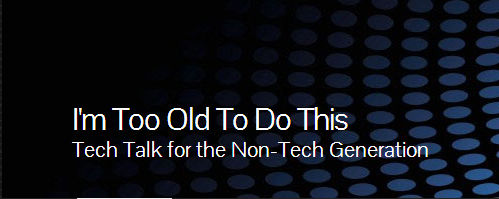Let’s face it… technology today is driven by apps. It used to be software, and for some users, software is still important. But when you’re dealing with tablets, and phones, and even software to some extent, many of us are getting our apps through some sort of App store.
It might be called the App Store, or Google Play or Windows Marketplace, but they’re all the same. There are numerous variants of apps that do the same thing. The real question, is which app should you get — especially if there’s a cost to that app!
The most natural thing to do is to look at the reviews and ratings that are associated with that app. It’s logical that the reviews and ratings by users of the app would give you a good indicator of whether the app is worth the time and/or the money. And often they are — especially if you use them smartly. I usually take them with a grain of salt, however. I usually disregard the 5 star ratings and I definitely avoid the 1 star ratings.
While some of those may be legit, oftentimes a 5 star rating, especially on a brand new app, is misleading. It could be the authors’ friends, or a paid service that’s designed to “up the profile” of the app so that it shows up at the top of the list when you search. Call it fan-boy ratings or whatever, but they oftentimes don’t reflect a real world evaluation of the app.
Then, there’s the one star ratings. Those sometimes scare me. Sometimes it’s the competition slamming their competitor’s product. Sometimes it’s because someone didn’t like something the app does, versus their expectation. And sometimes, there’s even organized movements to give apps a one star rating for a specific reason. I just heard of one movement to rate apps one star if they throw up a pop-up that asks you to rate the app while you’re using it… I’ve had that happen more and more often, so I understand the frustration — but really — rate it 1 star just because of that? Let’s be real.
But just as important as the star ratings are who’s rating the app, what the reviews say versus what they mean, and how long the app has been around. Is is a new “flash in the pan” app, or a long time survivor. Does it do what it says? Has it been updated regularly, or has it languished through several variants of the software? Does the review say “this is a piece of crap” or “this is the greatest app I’ve ever used” or is there a legitimate explanation as to why it’s rated high or low.
Does it draw any comparisons to an app you already know something about so you have a benchmark to work against? There’s a lot that goes into a good rating and review system. Unfortunately, it sometimes takes a lot to dig through and find what they really mean. So, while ratings can be useful, it takes a bit of work to read through them and cull out the gems.
Something else to consider is that people who are “happy” with an app (or a purchase or a visit to a restaurant) typically don’t take the time to review and rate. People who have a negative experience tend to be more vocal and tend to review more often, and yes, more critically. So keep that in mind as you read reviews and ratings — not just on Apps, but on Yelp, Urban Spoon and just about any non-moderated rating/review website.
And don’t forget… a recommendation from someone you trust on an app can be worth more than any rating system in the world.





